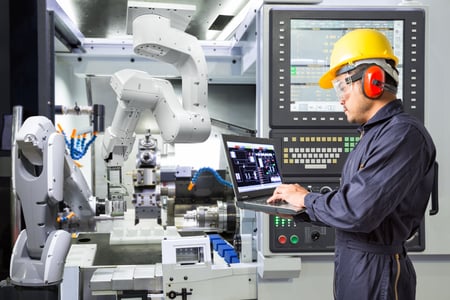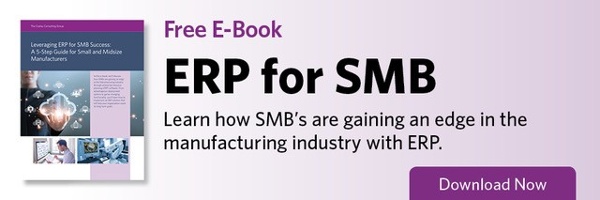Generic ERP Systems are being replaced with tailored software solutions. What's driving the trend?
It wasn’t that long ago that when software providers said “industry-specific ERP,” manufacturers heard “inflexible software.”
But thanks to the democratization of the cloud and the proliferation of software-as-a-service (SaaS) providers, industry-specific solutions are becoming the way of the future for manufacturers. How has ERP software evolved to help manufacturers stay competitive within their distinct industries?
ERP System Design: Then & Now
Historically, best-of-breed ERP solutions were the ones marketed as “one-size-fits-all” – the idea being that you start with a generic software with a big name and customize the solution to fit your needs. However, more and more manufacturers have come to realize that there is no universal solution for manufacturers across industries. From medical devices to aerospace, each niche has its own unique business needs, and the process of adapting a heavyweight software can be daunting – and sometimes, unsuccessful. At best, it can drag out implementations and tack on additional costs. At worst, it leaves manufacturers with a “Frankensteined” software comprised of clunky bolt-on features and inactivated parameters that hinder its ability to evolve with the business it was designed to serve.
Conversely, today’s industry-specific ERP systems leverage the latest tech breakthroughs, including application programming interfaces (APIs), to create specialized software suites right out of the box. Because these systems are purpose-built, they are lightweight in comparison to legacy systems that provide the kitchen sink, and then some. As a result, software packages put the end user first, allowing manufacturers to hand-pick modules and functions that meet today’s business needs while preserving their ability to quickly and easily reconfigure down the road.
The Benefits of Industry-Specific ERP
It may feel like a safer bet to go with the big-name ERP system and a general software package, but more isn’t always better. For instance, if a one-size-fits-all shirt is actually too big for you, the extra material isn’t an “added bonus” – in fact, it’s a disservice to you. Working from a solution that has been designed for the challenges of your specific industry allows you to see your ROI in a much shorter timeframe. Your implementation period will be shortened as mission-critical functionality is already baked into the software (no time-consuming add-ons needed). Likewise, modern industry-specific systems come with API connection tools to help the ERP system readily integrate with other systems such as your CRM, further reducing implementation time. Less time and less customization also means less budget dedicated to deployment. And once the software is live, you can work with your SaaS provider to tweak the software to address any hitches or bottlenecks. As tech experts who work in the trenches of your industry, they will also be a steadfast partner for retooling your system in times of growth or expansion.
Conclusion
ERP technologies are evolving at a pace never before seen in the manufacturing world. And these new features, the ones that enable globalization, mobilized workforces and AI, aren’t going anywhere. You could pay for a big-name system that’s also been adopted by the local hospital, school district and bank down the street. Or, you could apply these cutting-edge tools in a way that make sense for your business by selecting an industry-specific ERP system that in the years ahead may be used by your biggest competitors. The decision lies with you.

